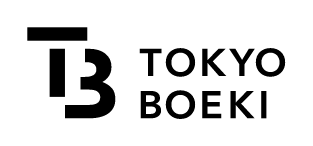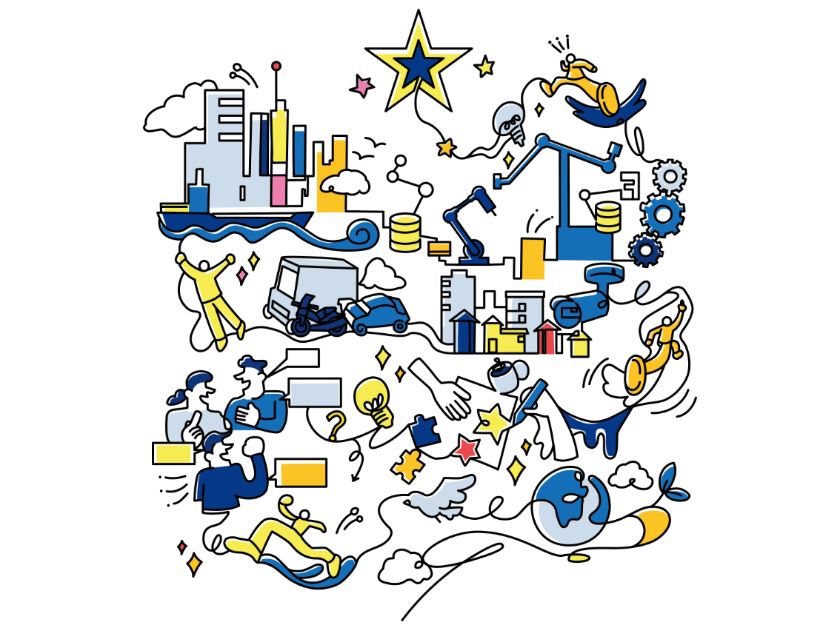HISTORY
Since its establishment in 1947, the Tokyo Boeki Group has further enhanced the expertise and business capabilities it has built up over the years, and all employees are united in our goal of becoming No. 1 in our respective business fields.
Origin of the TOMAS
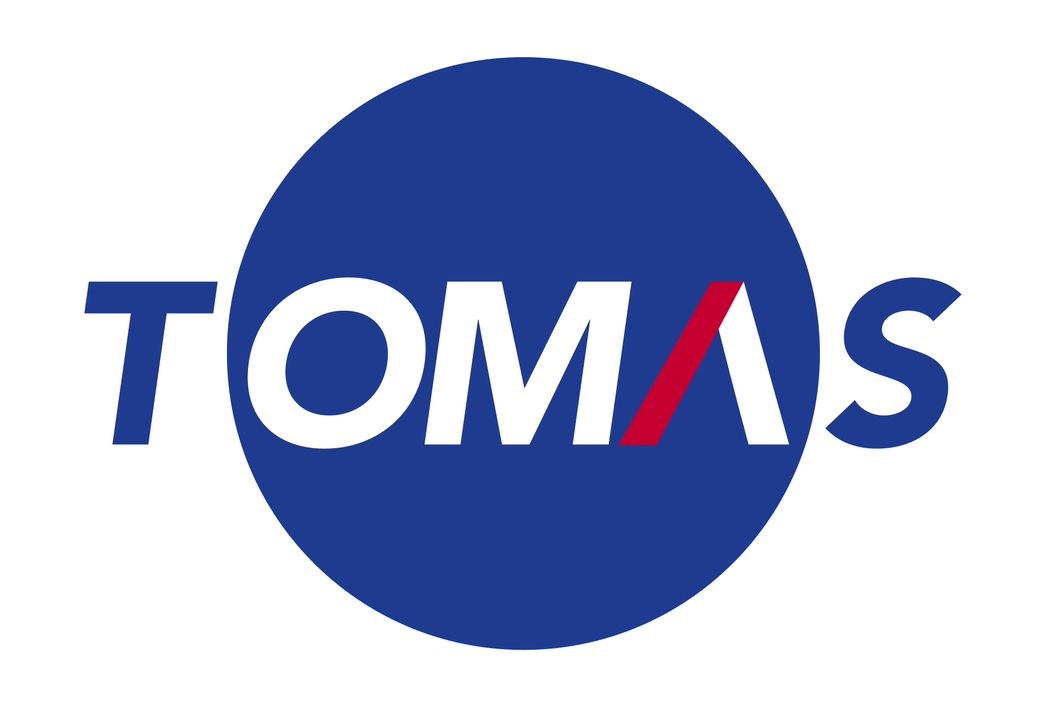
Tokyo Boeki Group’s previous logo
(until 2023)
Right after the Second World War, when both the Japanese government and the private sector believed that it would be difficult to trade with China without diplomatic relations, our founding president Matsumiya succeeded in establishing a barter trade system in which products of the same rank were exchanged.
Later, the TOMAS method was created as a method of settlement in which exports precede imports even if the imports are not fixed, and later, a letter of credit is issued for the corresponding imported goods.
TOMAS is a telegraphic abbreviation for the English name of the company at that time, Tokyo Merchandise Company Ltd. “TOMAS letter of credit" is also listed in the Trade Dictionary.
Chronological tables
-
1947
Founder Yasuo Matsumiya establishes Tokyo Boeki Shokai.
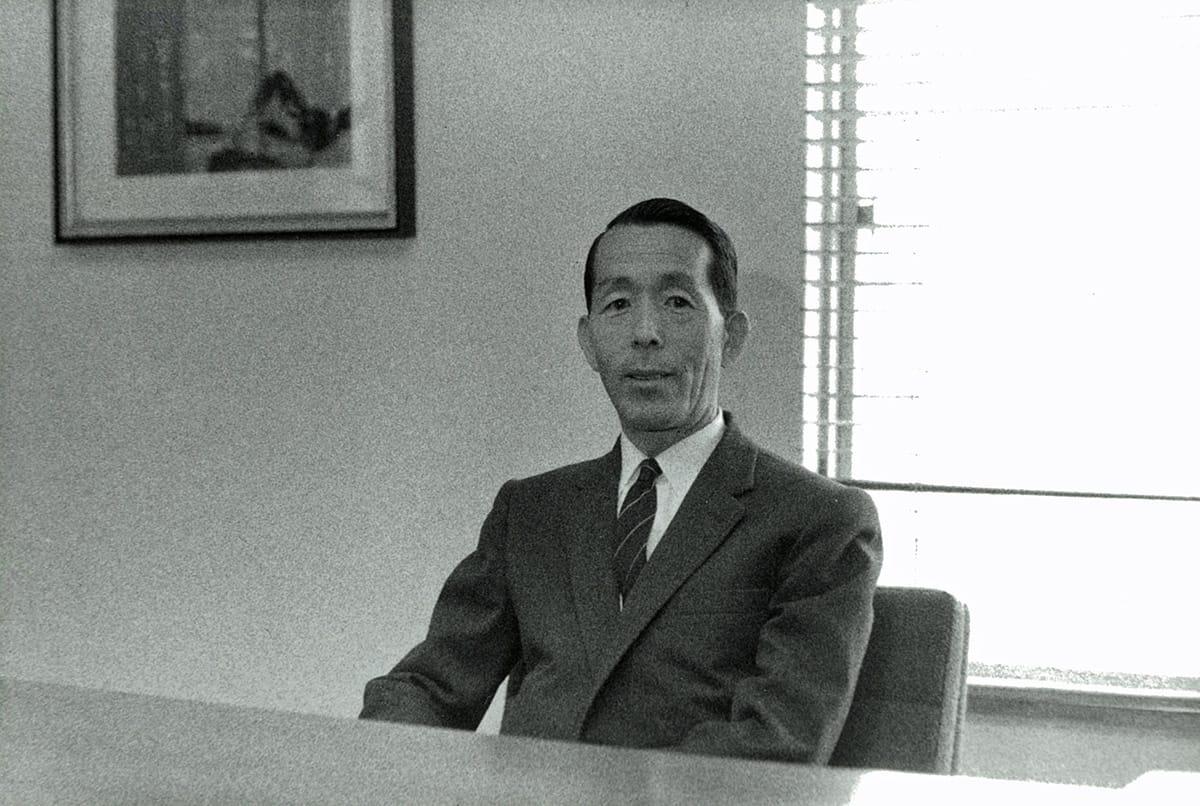
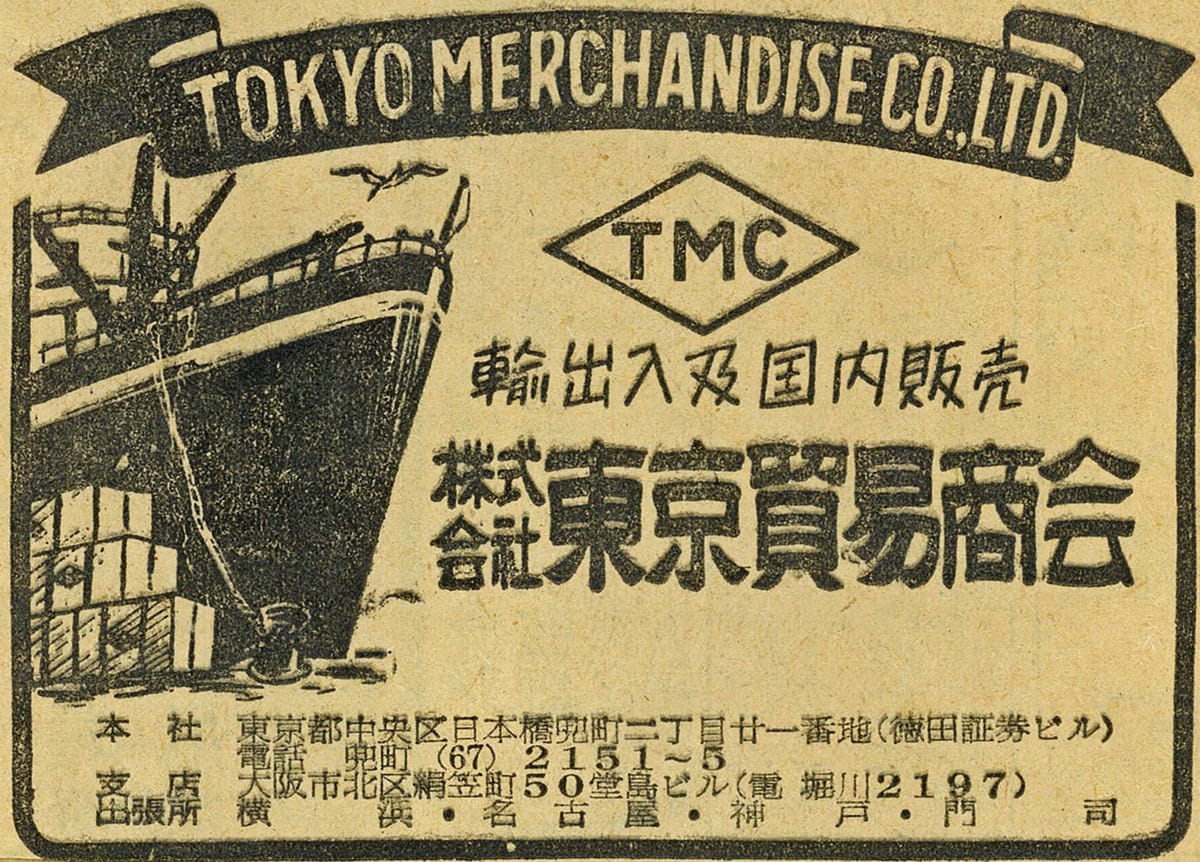
-
1949
Opens an Osaka sub-branch.
-
1951
Tokyo Boeki Shokai is authorized by the Japanese Food Agency as a food importing trading company.
-
1953
Inaugurates the first post-war barter trade with China using the newly formulated TOMAS Way (use of the acronym TOMAS is derived from the company's former name: Tokyo Merchandise Company Ltd.), becoming the forerunner of Japan-China trade.
-
1954
Enters steel trading; appointed as Yahata Iron & Steel Co.Ltd.'s (now Nippon Steel Corporation) export agent;establishes steel business and related businesses.
-
1955
Acquires sole Japanese distributorship of US company Chiksan Corporation's joints and loading arms, and starts machinery imports; establishes foothold for the company's future growth in the electric power, gas, and oil industries.
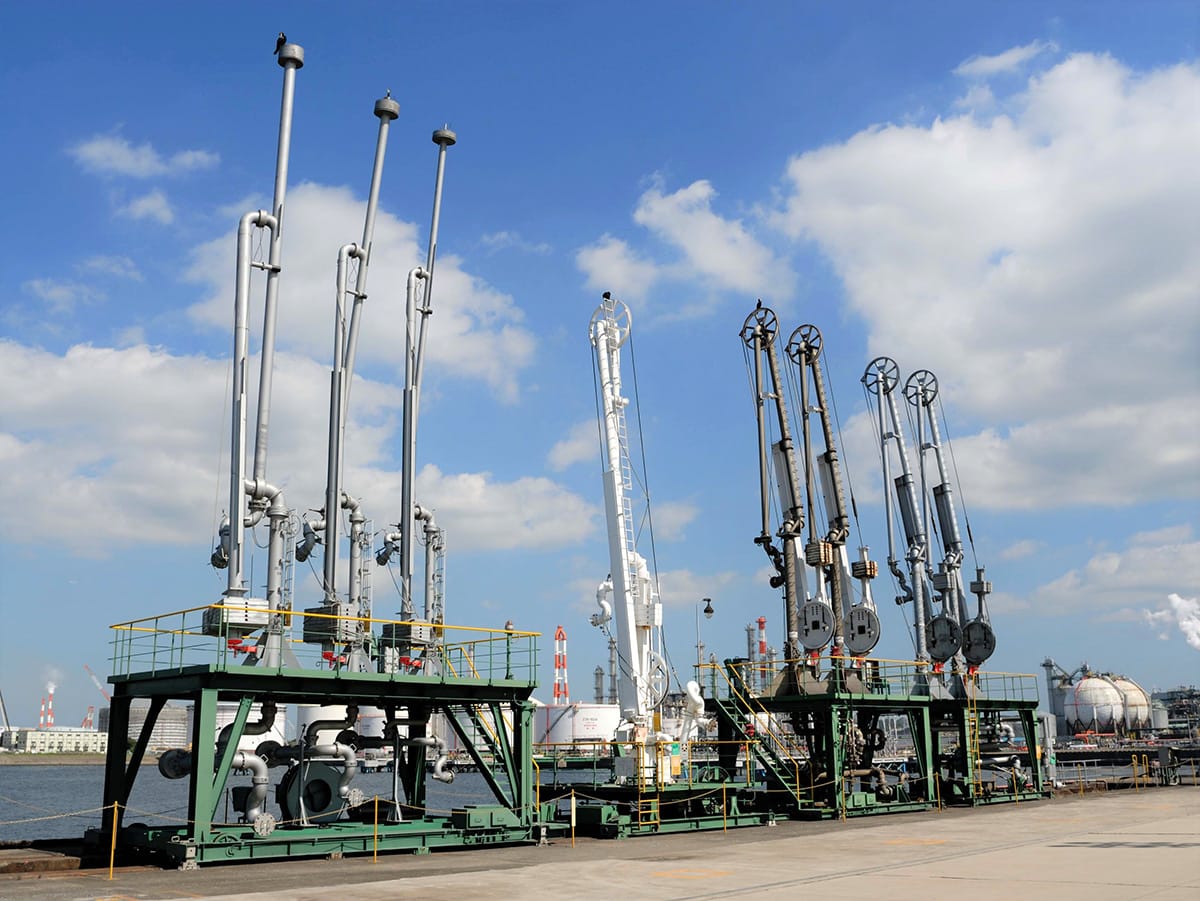
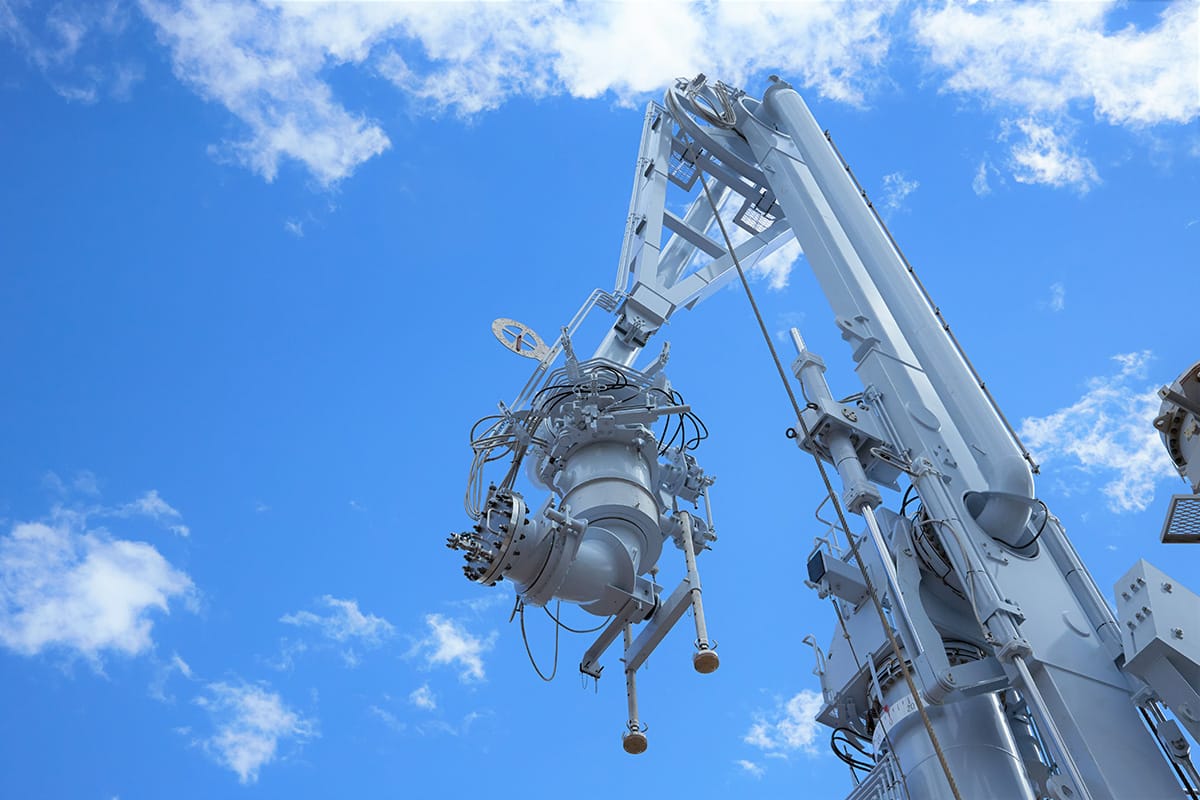
-
1956
Is appointed as an export agent by Fuji Iron & Steel Co., Ltd. (now Nippon Steel Corporation).
-
1957
Changes company name from Tokyo Boeki Shokai to Tokyo Boeki Ltd.
The Osaka sub-branch becomes the Osaka branch.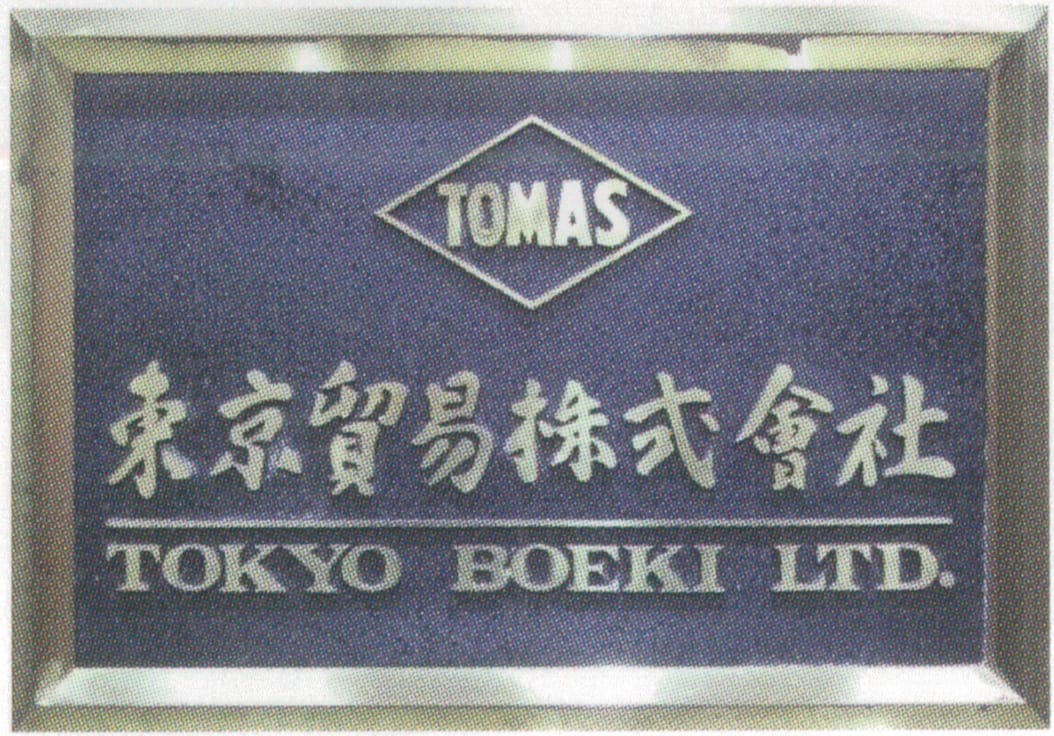
-
1958
Japan-China trade is suspended as a result of the Nagasaki Flag Incident, creating the opportunity to reform our business structure and expand our market.
-
1959
Achieves large sales of hot rolled coils to John Lysaght Ltd., a subsidiary of BHP Australia.
Opens representative office in Moscow, USSR (now Russia).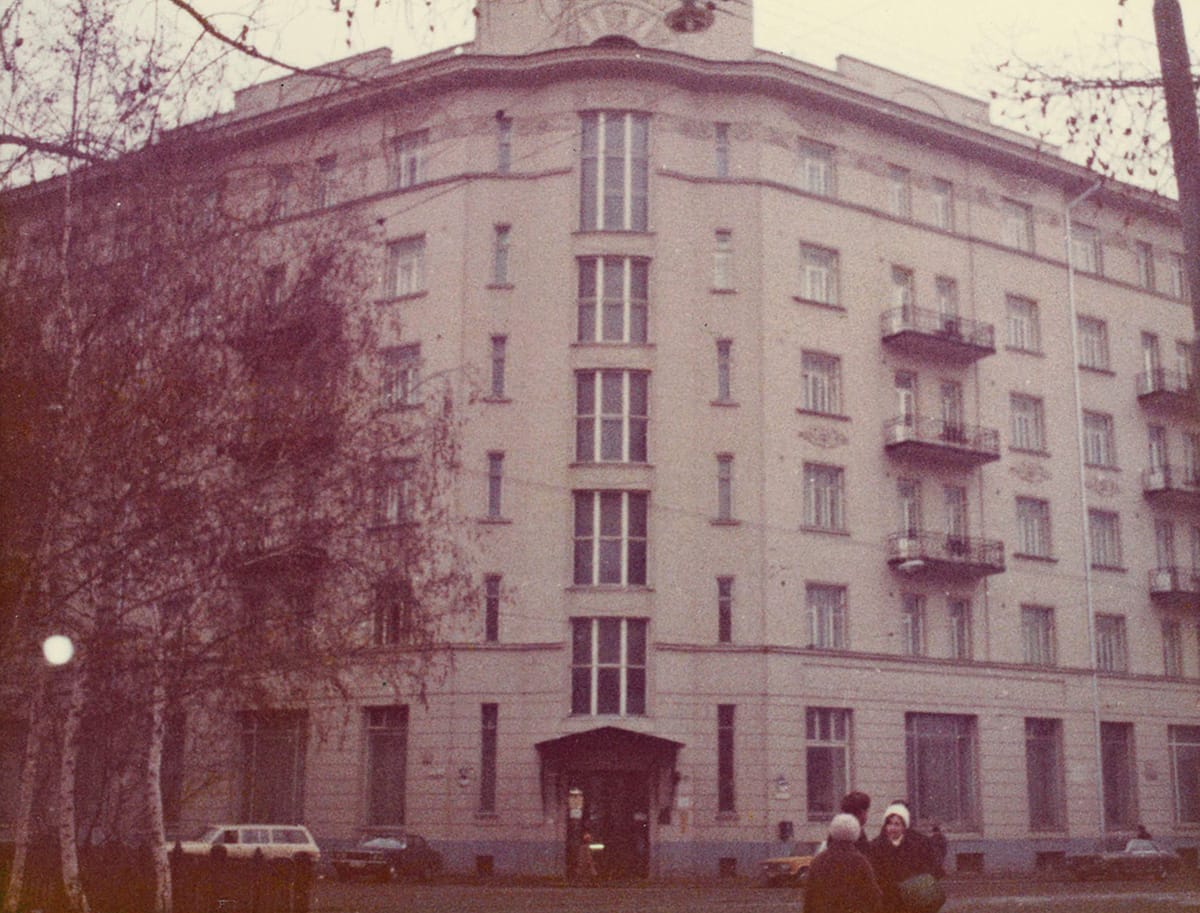
-
1959-65
Opens offices in Sydney and Melbourne (Australia), New York (US), and Beijing (China) to conduct international trade.
-
1960
Acquires sole Japanese distribution rights for iron ore from Timblo Ltd., Goa, India and begins handling iron ore. This leads to imports of iron ore from Australia.
-
1962
Exports of steel products to the EEC (now the EU) expand greatly.
-
1963
Opens an office in New York and in Beijing.
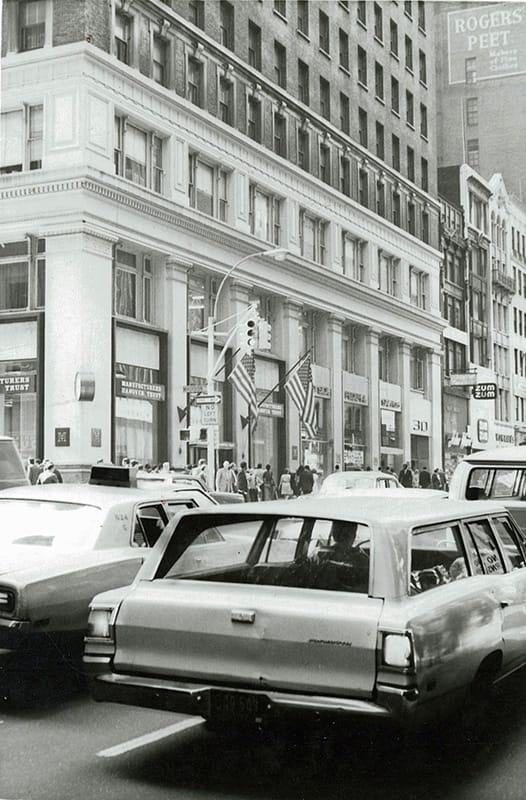
-
1964
Incorporates the New York Office into Tokyo Boeki (U.S.A.), Inc.
-
1966
Acquires sole Japanese distribution rights for manganese ore from BHP Australia, resulting in a strong relationship between the parties.
-
1967
The Moscow representative office is officially approved by the government of the then-Soviet Union, the first time such approval has been extended to an enterprise of a non- communist country.
-
1969
Completes construction of Atsugi plant for the manufacture of measuring instruments and design equipment
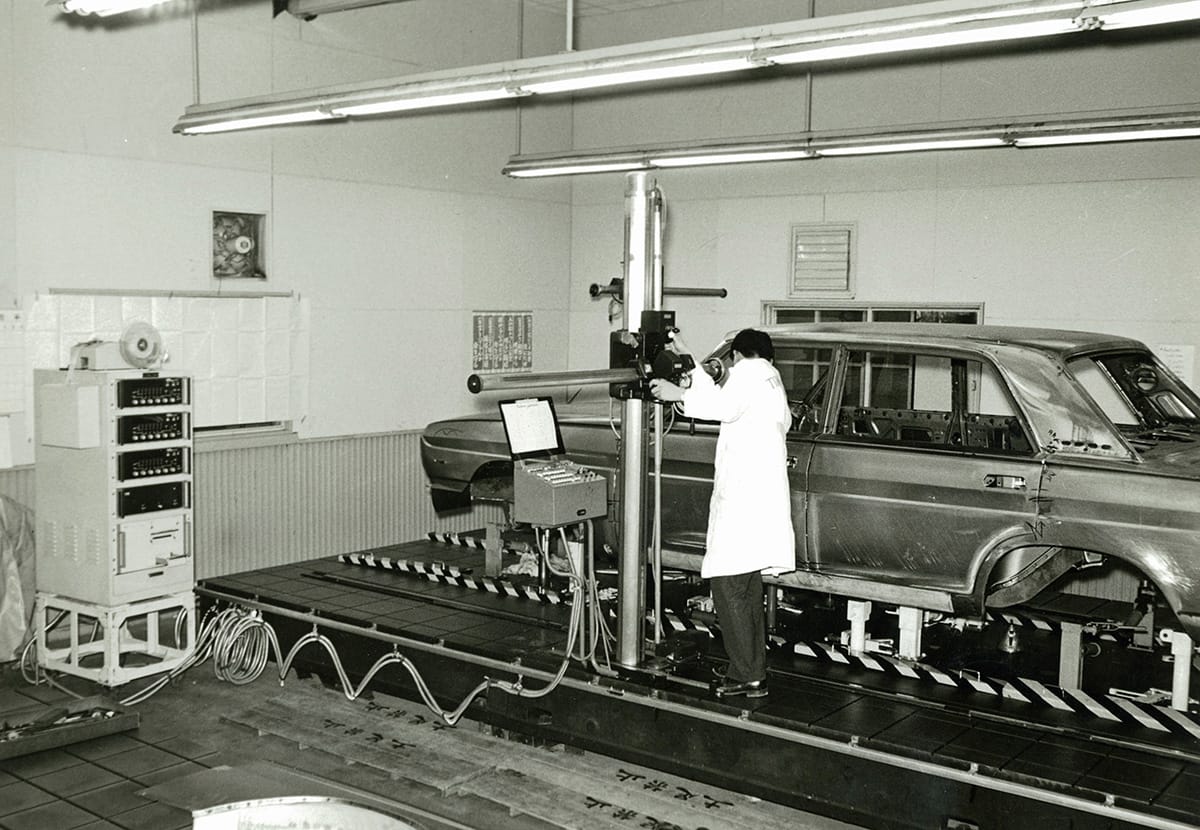
-
1973
Enters the restaurant industry in the United States with the opening of the exclusive Japanese restaurant INAGIKU at the Waldorf Astoria Hotel in New York.
-
1974
Through a joint venture, establishes Qatar Steel Co., Ltd. in Qatar, as Tokyo Boeki's first full-scale steel plant in the Middle East. This marks the start of the company's overseas production and multilateral trading.
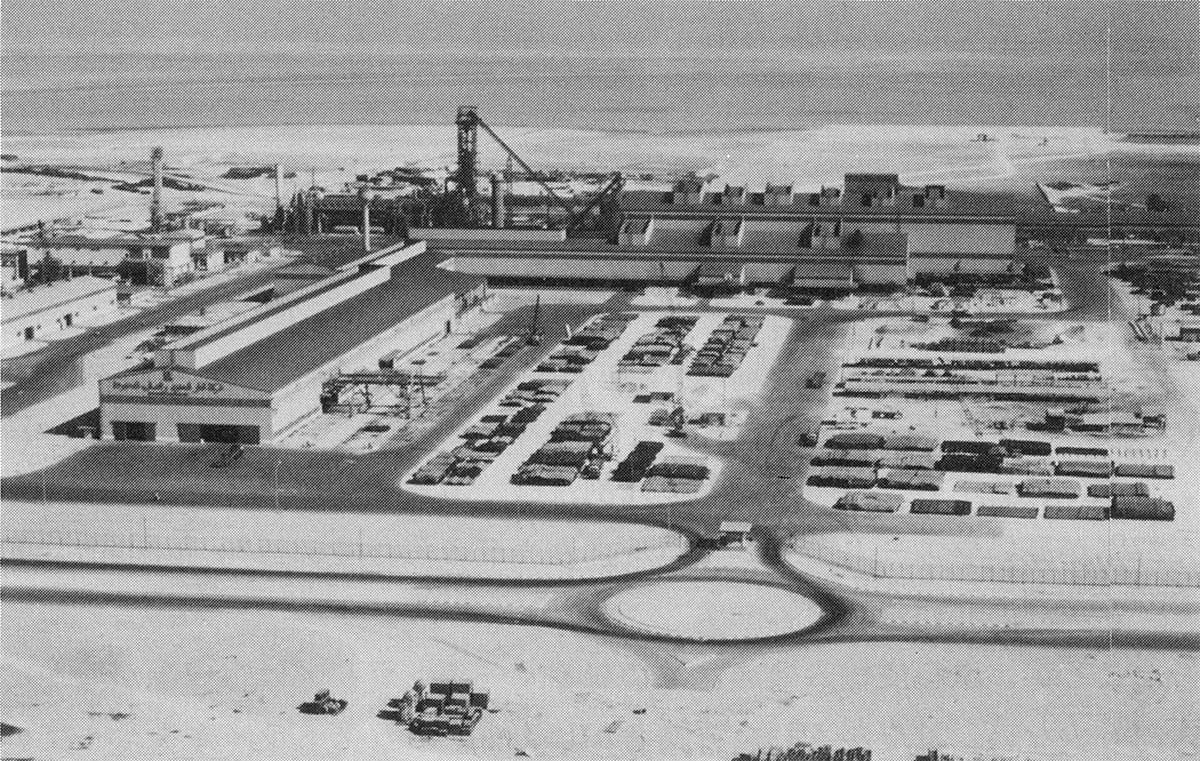
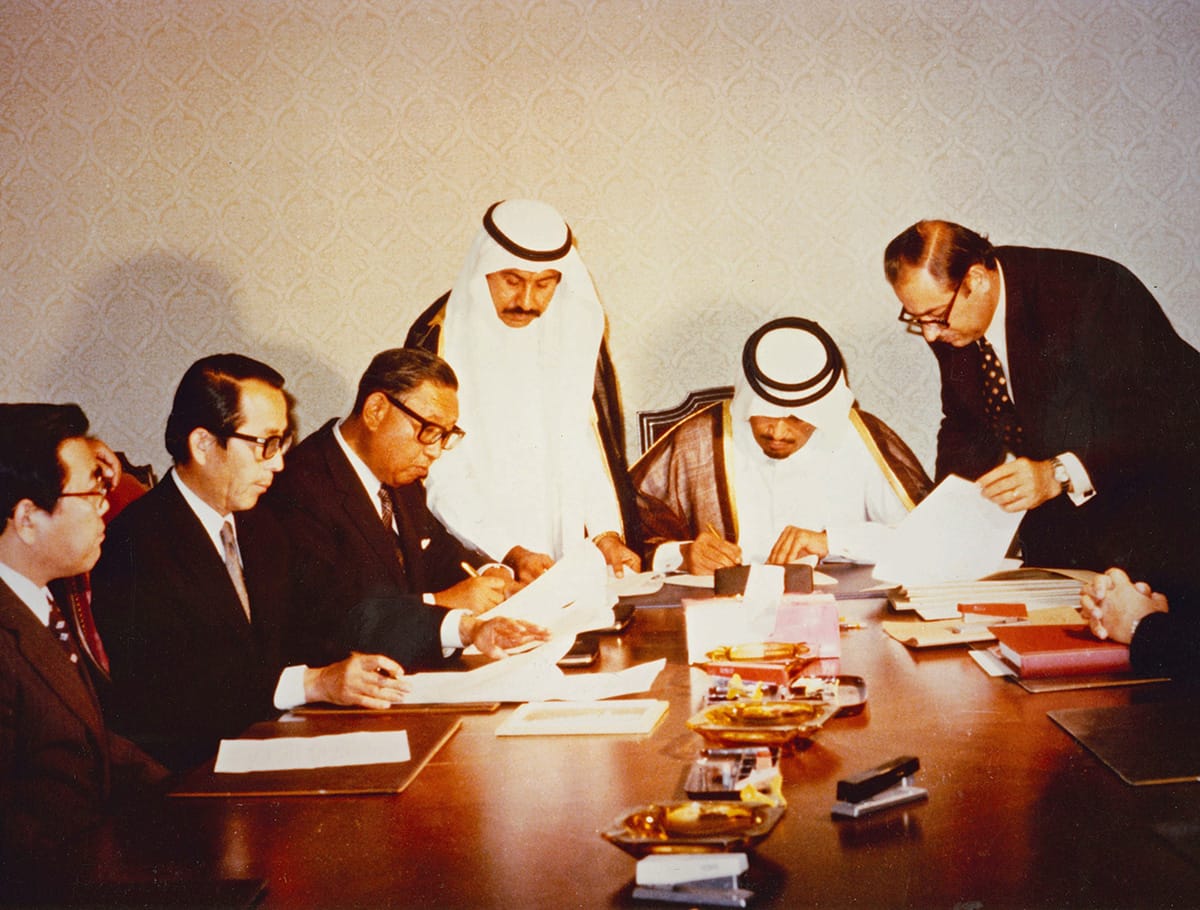
-
1976
Opens a representative office in Vancouver, Canada.
-
1978
Agrees to export to China a large quantity of automobiles for Toyota Motor Corporation and Hino Motors, Ltd. This helps expand long-term trade with China.
-
1980
Agreement finalized with BHP, Australia to import coal from the Gregory Coal Mine on long-term basis.
-
1983
Invests in Quintette Coal, Canada, to diversify coal sources abroad.
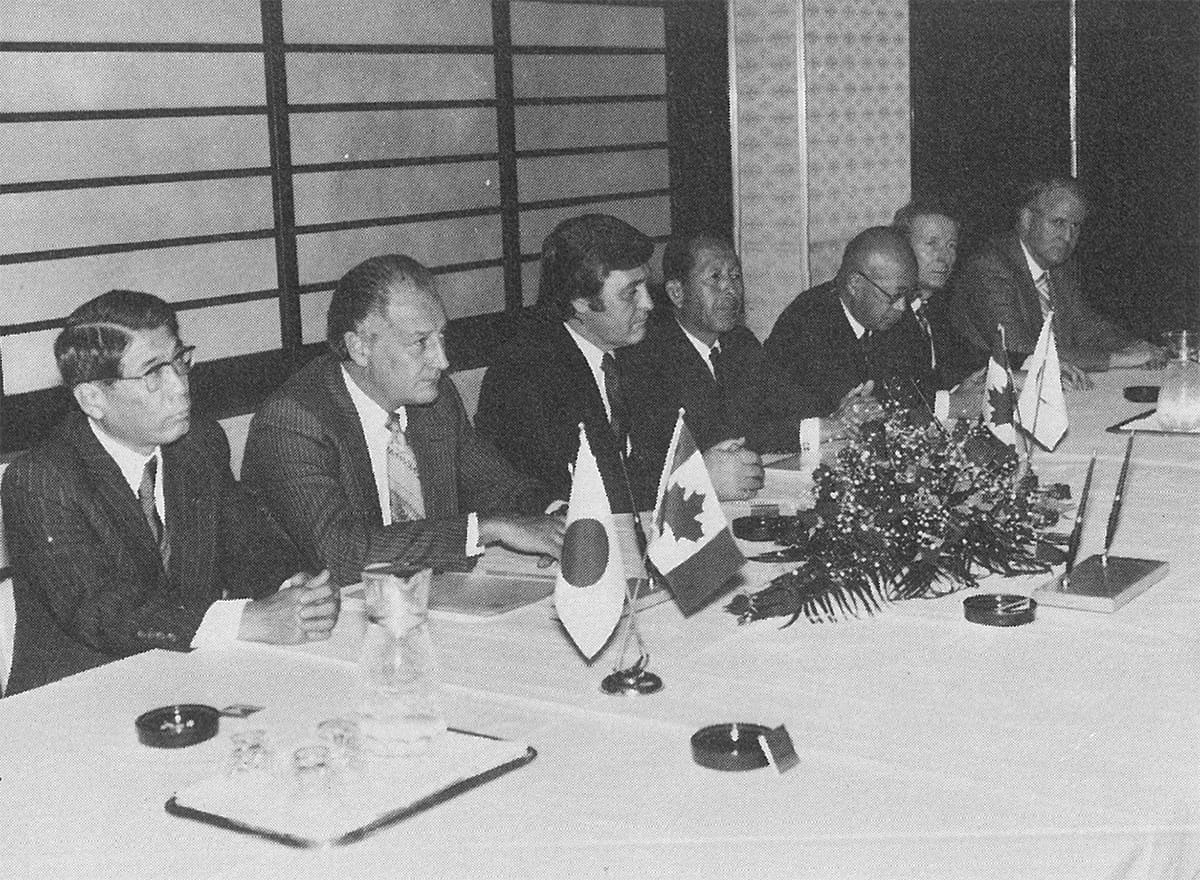
-
1985
Founds Monitor Products, Inc. in the US state of New Jersey.
Starts selling electrical appliances in the United States. -
1986
Founds T.B. Tech Co., Ltd. in the Japanese city of Toyota, Aichi Prefecture.
-
1988
Opens representative office in Detroit, United States (now Tokyo Boeki North America, Inc.).
Opens a representative office in Hong Kong. -
1994
Moves to apply a federated management system to the Group, making domestic and overseas enterprises independent.
The Atsugi plant becomes an independent company and is renamed Tokyo Boeki Techno-System Ltd. -
1995
Founder, Yasuo Matsumiya, appointed chairman and executive director.
Executive Vice President Hiroshi Machida appointed president.
Opens a representative office in Seoul, South Korea.
Establishes AMLAND Corporation (now TB-eye Ltd.)
Sets up Jinan Ludong Refractory Co., Ltd., a joint venture in Jinan, Shandong Province, China. Starts manufacture and sale of refractory raw materials. Supplies the Japanese steel industry, thus helping reduce costs.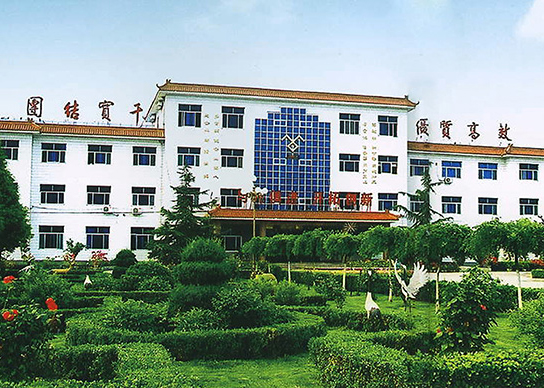
-
1996
Establishes TOKYO BOEKI (Singapore) Pte.,Ltd.
Sets up Shangyu Dongshun Refractory Co., Ltd., a joint venture company, in Shangyu, Zhejiang Province, China, to reinforce the refractory raw materials business. -
1997
Introduces processing technology from Eco-Logic Corporation (Canada) for refractory organics such as PCB.
Marks the company's entry into the environmental field. -
1998
Encourages divisions to become independent and create new lines of business.
-
1999
Founds Tokyo Boeki Medical System Ltd. and starts to manufacture and sell automated analyzers for medical applications.
Invests in Cook Resources Mining in Australia and promotes demand for non-caking coal. -
2000
Forms an alliance with the US company IdaTech, acquires the right to manufacture and market IdaTech's fuel cell systems in Japan, and enters the new energy sector.
-
2001
Founds TOMAS Trading (Shanghai) Corp.
-
2002
Sets up TOMAS (Tianjin) International Trade Co., Ltd.
The Headquarters business unit is reorganized as the new Project Division, focusing on growth and development. -
2003
Establishes Niigata Loading Systems, Ltd. Integrates the development, manufacture, and sale of fluid-loading machinery for the energy industry.
Kawasaki Refractories Co., Ltd. (now Shinagawa Refractories Co., Ltd.) significantly boosts the manufacture and sale of refractory raw materials through equity participation in Jinan Lu Dong Refractory Co., Ltd., China. -
2005
Establishes Tokyo Boeki (Beijing) Ltd., a local corporation, with 100% investment by Tokyo Boeki, for integration of the steel- making refractory brick business.
This allows independent business operations in the Chinese market and business expansion, primarily through the sale of refractory bricks. -
2006
Establishes Tokyo Boeki Machinery Ltd. and Tokyo Boeki Steel & Materials Ltd. through a spin-off, in order to accelerate the move to a federated management system.
-
2007
The Tokyo Boeki Group celebrates its 60th anniversary.
Founds Tokyo Boeki (Rus) Ltd. in Moscow, aiming to strengthen the market of the Commonwealth of Independent States. -
2008
Completes construction of Tokyo Boeki Techno-System Ltd.'s Atsugi Optical Technology Center.

-
2009
Restructures TOMAS Trading (Shanghai) CORP. as Tokyo Boeki (China) Ltd.
Relocates T.B. Tech Co., Ltd. headquarters and Toyota Office of Tokyo Boeki Techno-System Ltd. to new building in Toyota. -
2011
Restructures Tokyo Boeki Medical System Ltd. to found Tokyo Boeki Medisys Inc. Restructures Tokyo Boeki CIS Ltd. and changes name to Tokyo Boeki Technology Ltd.
-
2012
Marks 65th anniversary of Tokyo Boeki Group and holds a commemorative party at the Palace Hotel.
Produces the Tokyo Boeki Group anthem “TOMAS - One for All.” -
2013
Company name is changed from Tokyo Boeki Ltd. to Tokyo Boeki Holdings Corporation; capital is increased to ¥3.0bn.
-
2014
Capital increased to ¥5.0bn.
-
2015
Niigata Loading Systems, Ltd. restructured as Tokyo Boeki Engineering, Ltd.
-
2017
Tokyo Boeki Machinery Ltd. succeeds the Russia Division of Tokyo Boeki Technology Ltd. through an absorption-type merger.
Tokyo Boeki Steel & Materials Ltd. is restructured as Tokyo Boeki Materials Ltd.
Tokyo Boeki Group celebrates 70th anniversary; holds a ceremony at the Palace Hotel.
The Tokyo Boeki Group headquarters moves to the KYOBASHI EDOGRAND building, to which most of the Group companies'headquarters are relocated.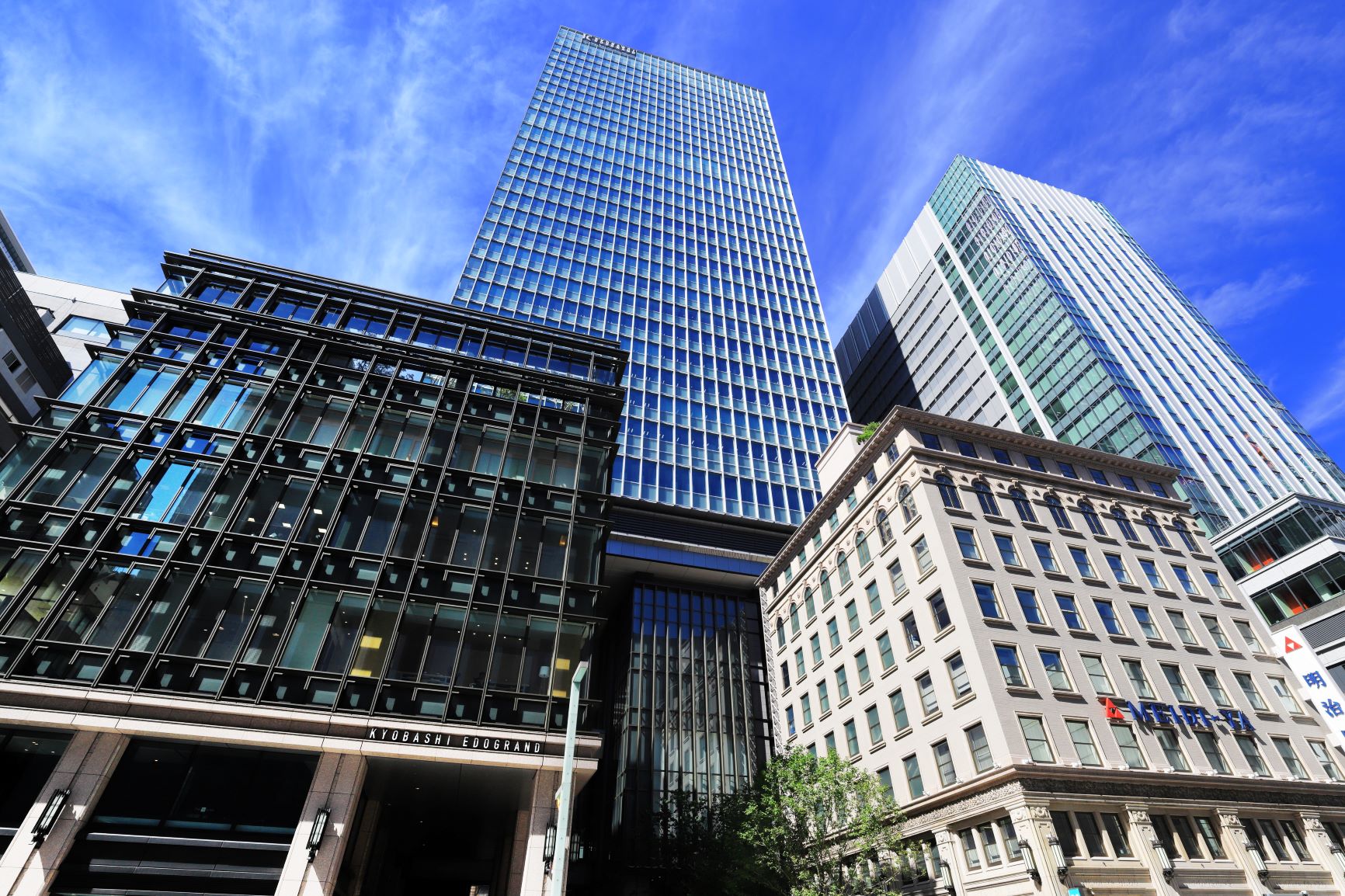
-
2018
Completes construction of Tokyo Boeki Engineering Ltd.'s new Nagaoka Factory office building.
-
2020
Establishes tb innovations Ltd.
-
2021
Sets up TB Global Technologies Ltd. through the merger of Tokyo Boeki Machinery Ltd. and Tokyo Boeki Engineering Ltd.
-
2023
Banshu Electric Equipment Co., Ltd. and PT. Banshu Electric Indonesia became a member of Tokyo Boeki Group by M&A.
Tokyo Boeki (RUS) Ltd. is restructured as TOKYO BOEKI EURASIA LLC
Japan Advanced Roll Co., Ltd. became a member of Tokyo Boeki Group by M&A.
-
2025
Establishes TOKYO BOEKI INDIA PRIVATE LIMITED.
